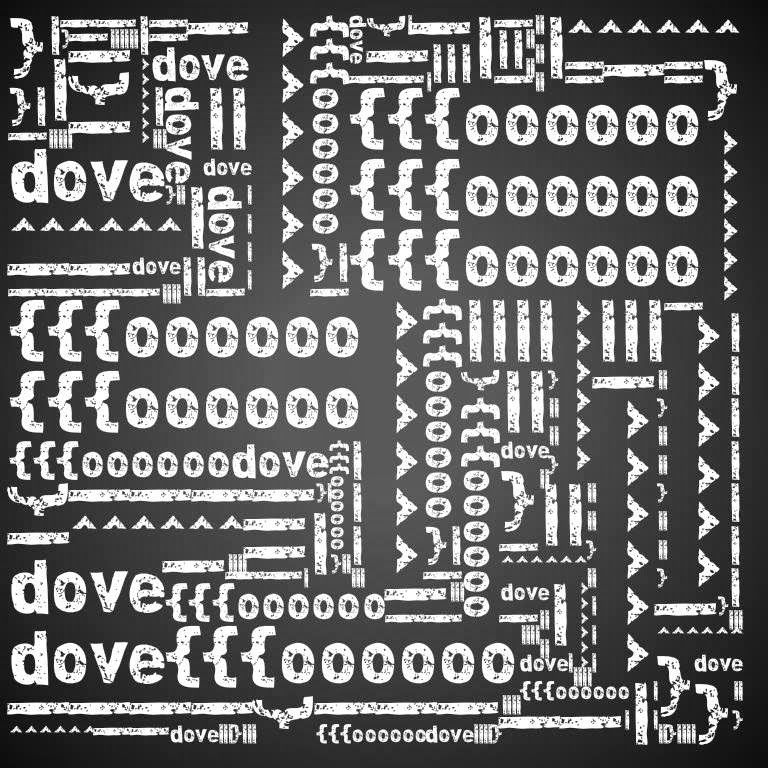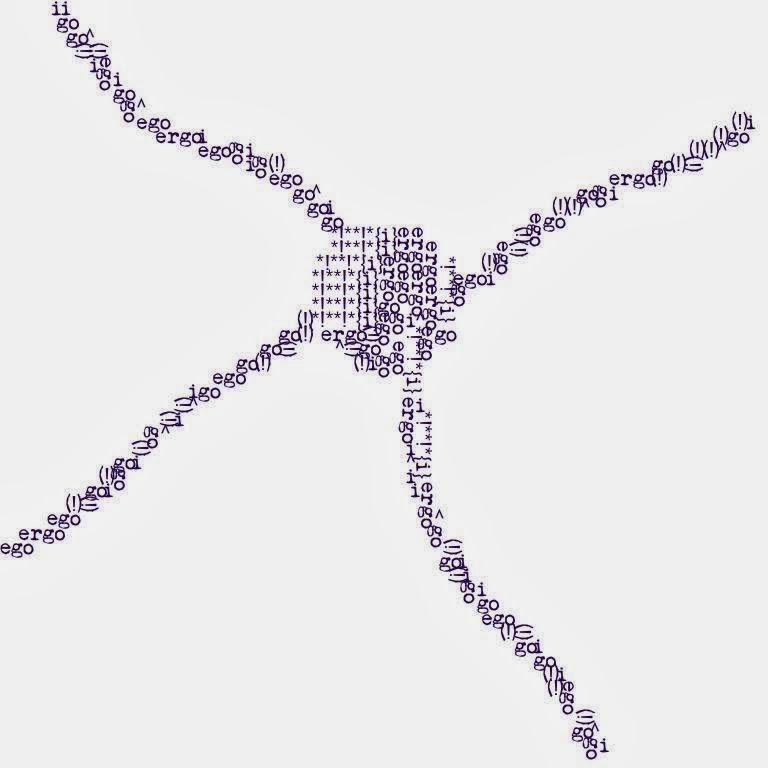Some new poems at Tip of the Knife:
http://tipoftheknife.blogspot.co.uk/2014/12/tip-of-knife-issue-18.html
Tuesday 23 December 2014
Saturday 20 December 2014
Utsanga: Italian journal of vispo and asemic writing
A rather excellent Italian journal of visual and asemic poetry in which I'm grateful to feature:
http://www.utsanga.it/?p=364
http://www.utsanga.it/?p=364
Monday 8 December 2014
Extreme Writing Community
A couple of pieces at Extreme Writing Community, a poetry blog based in the Ukraine:
http://seks-ua.blogspot.co.uk/2014/12/stephen-nelson.html#more
http://seks-ua.blogspot.co.uk/2014/12/stephen-nelson.html#more
Monday 1 December 2014
The Adirondack Review
Delighted to have some vispo in the winter issue of The Adirondack Review:
http://www.theadirondackreview.com/stephennelson2.html
http://www.theadirondackreview.com/stephennelson2.html
Friday 26 September 2014
Thorn Corners Review
Just discovered this delightful review of my book Thorn Corners. If it tempts you, I still have a few copies:
http://drfulminare.com/thorncornersreview.php
http://drfulminare.com/thorncornersreview.php
Thursday 25 September 2014
Tuesday 23 September 2014
BlazeVOX Vispo
I have some Vispo in the Fall issue of BlazeVOX Journal. Hurray!
http://www.blazevox.org/BX%20Covers/BX14Fall/Stephen%20Nelson%20-%20Fall%2014.pdf
http://www.blazevox.org/BX%20Covers/BX14Fall/Stephen%20Nelson%20-%20Fall%2014.pdf
Thursday 31 July 2014
Vispo at Otoliths
The new Otoliths, hot off the press. Here's some Vispo of mine:
http://the-otolith.blogspot.com.au/2014/06/stephen-nelson.html
http://the-otolith.blogspot.com.au/2014/06/stephen-nelson.html
Friday 13 June 2014
New Vispo Blog!
I've started a new blog over at tumblr where I'll be posting all of my Vispo from now on. Fear not though, followers of the original afterlights, I'll be maintaining this blog for notifications, publications, essays, reviews and anything else poetry related. And of course, the links to my books are here, so buy one if you haven't already :). Just mail me or contact the publishers.
It's a fresh start for a fresh batch of Vispo! Vispo love! Vispo devotion, addiction - and you can find it all here:
AFTERLIGHTS VISPO
Happy browsing, and may the holy gods of Vispo bless and keep you, and enlighten your lovely eyes.
Thursday 12 June 2014
Wednesday 11 June 2014
Tuesday 10 June 2014
Monday 9 June 2014
Sunday 8 June 2014
Friday 6 June 2014
Sunday 25 May 2014
Ex-Ex-Lit
Try yer eyes on these. Some experiments with corrective text at ex-ex-lit:
http://ex-ex-lit.blogspot.co.uk/2014/05/5-poems-stephen-nelson.html
http://ex-ex-lit.blogspot.co.uk/2014/05/5-poems-stephen-nelson.html
Tuesday 29 April 2014
Monday 21 April 2014
Tuesday 15 April 2014
Thorn Corners - The Book (erbacce-press)
My new book of minimalism is now available from erbacce-press. It's called Thorn Corners and it's a 96 page monster of minimalist delights. You can buy it via the link - click on the image to the right - or email me and I'll get you a copy. Happy to swap if you have something tasty to offer. Many thanks to Andrew and Alan at erbacce.
THORN CORNERS
Friday 11 April 2014
Tuesday 8 April 2014
Sunday 6 April 2014
Saturday 5 April 2014
Thursday 3 April 2014
Wednesday 2 April 2014
Wednesday 26 March 2014
Friday 21 March 2014
Sunday 16 March 2014
Tuesday 11 March 2014
Friday 7 March 2014
Thorn Corners - The Book (erbacce press)
Here's the cover for my new book, Thorn Corners, available soon from erbacce press. And below is a short introductory essay to the book which the editors asked me to write. It's a book of minimalism, and I'll certainly give you a shout when it arrives. In the meantime, I hope you enjoy these personal reflections on minimalist poetry:
THE WORLD AND THE BEGINNING
OF THE WORD
In the beginning, a boy sits
on a tiny, plastic chair in front of a wooden desk, flipping the lid of a tin
open and pouring out a batch of tiny strips of card. On each of the cut up
strips, a word is written – one word, just one word. He is able to arrange the
strips into rudimentary sentences, shapes of words on thin slivers of paper,
brought together to form something basic that might mean something to him:
“boy”, “sits”, “on”, “chair”, “is”, “happy”.
Tiny letters, tiny words,
tiny phrases – the building blocks of language. The foundation for so much
thought, memory, emotion is laid, is felt on the fingertips, smelt in the tin,
and always, later, that desire to return to the simplicity, or complexity, or
mystery of the single word, the shortest phrase.
Minimalist poetry is primal. It springs from
the first seed of learning. It is quantum, as the poet Mike Cannell has said,
because it deals with the subatomic particles of language. It is cellular,
microscopic, alive, because in that tiniest, barely observed detail, a whole body
of meaning is opened up.
In minimalist poetry of the sort I enjoy,
words are magnetised, drawn together by sound and shape. You might say letters
are like particles – if they are moved by the observer, the poet, something
unexpected happens. The reader is given a quantum surprise. Syllables are
atoms, pulled together by sonic vibration to form molecules which combine to
dance in unusual patterns across the page.
So what might the page be?
The white space around the poem reminds me
of the underlying field of consciousness on which all words and thoughts are
written. It is the bliss from which experience emerges. It is where we come
from, where we return to when the world/word ends. Tiny fragments of language
on a white page open up an infinite universe of something left unsaid; a
gesture can cause the world to burst. And the reader falls in and sinks down
and loses himself and drifts with the current and swims against the tide; all
the poet has done has been to shift a letter, turn a word upside down, melt two
words into one. mIEKAL aND says:
“brevity rearranges the reader’s
expectations of having the poet do all the heavy lifting.”
For me, the perfect poem is
made up of three words. As the old book says:
“a threefold cord is not easily broken.”
Three words are trinity,
treaty, tripartite triple whammy. So much meaning can be suggested by three
words, so much beauty. A word, too, on its own, a pwoermd, can explode meaning,
take a reader so deeply inside language, he or she might lose their bearings
and be washed ashore on the broken shells of the alphabet.
“The pwoermd is made for the hyperliterate,
for those so deep within the word that they have forgotten the sense of words
except abstractly, for those sensitive to the meaning of a serif (and it is
there), for those sensitive to not only the sound but also the sight of the
word. For those who can smell the size and weight of a word with their eyes
closed.”
(Geof Huth interviewed by
Gary Barwin – The Ecstasis of the Pwoermd, Jacket2)
One word, then, is where we
start, one word on a card, one shape; a letter left hanging at the end of a
word, the tail of the ‘p’, upturned, the seed sounds ‘da’ or ‘ma’, magnetised.
This book starts there and ends with a hanging ‘g’, before disappearing into
blank, white space. Where we start, where we end, and the thorn corners we
negotiate in between.
Saturday 22 February 2014
Wednesday 12 February 2014
Friday 31 January 2014
Thursday 30 January 2014
Wednesday 29 January 2014
The Effects of Sangria
We were directed to a row of fishermen’s taverns along the
shore of southern Spain, by a tramp with a face like a hawk, who slept in a
railway station in Paris; a full day’s journey in thickening heat, eating only French
bread dipped in liquid jam.
Small wooden boats
lay moored on the beach, tangled up in nets and soaking in saltwater sunshine.
We took off our boots and cooled our feet in the sea. A turd floated up to my
ankles. The scent of oil and fish hung in the breeze blowing off an expanse of
blue-grey light. We were preserved in a radiant bubble.
The first tavern
was run by a man called Angel, and we had been instructed by the tramp to
introduce ourselves as his friends. His bar was a simple wooden hut, stacked
cane wrapped in string, wooden stools, cool, grassy shade. He served sangria
and sardines, a salt and sweet wine treat which refreshed us instantly. Sweat
and steam poured from our feet, our bodies; the sweet wine soothed our limbs;
the oily fish invigorated us. It took a while, but eventually we mentioned the
tramp.
Something ignited
through the broken Spanish – a memory, a confrontation. Angel frowned and stepped
back. His wife popped her head through the bead curtain. Gulls fought over
scraps of fish on a plate.
“Ok, it’s good,
it’s good,” said Angel, nervously drying a glass and knocking over the salt as
he reached to put it away.
The bar smelled of
stale wine. His wife mumbled, cursed in Spanish, before disappearing into the
gloom behind the bar. Something rose up from the sea and settled on the sand. My
friend and I bristled at the hurt, then re-took our seats. We drank a little
sangria and ordered more sardines.
Neither of us knew
why we’d come to this stretch of Spanish coast where the boats breathed the
smell of shit and frying fish. They sheltered us that night, but still I was
startled awake by Angel’s dog sniffing my face in the early morning, when
terrors are supposedly asleep and the pain of day break is only a dream. Angel
pulled it off me before it had the chance to sink its teeth into my cheek. My
friend woke with a shriek an instant later. I paused to breathe the salt air
and listen to the trembling waves, wondering why I was so distant, so adrift.
It seemed reckless and foolish against the laughter of the sea.
The next morning Angel
smiled at me, indicating the guard dog safely chained in a pen beside the bar.
I smiled back and felt an overwhelming need to apologise, but the sun had dried
my tongue and my mouth was tight and stretched like leather.
We left before
midday, heading for the gardens in town where tourists cooled themselves and
ate hard boiled eggs in the shade. Angel was serving sangria to olive skinned
fishermen coming ashore from a night’s fishing. As the sun hid behind the dark
cane roofs, I remembered giving the tramp a brand new T-shirt in exchange for a
night’s sleep in the Paris railway station, and instantly regretted it.
Friday 24 January 2014
iPad Typewriter Poems - Streetcake 33
STREETCAKE ISSUE 33
2. The Microscosmic Orbit
3. Brain on Fire
My iPad typewriter poem adorns/defaces the front cover of the new issue of Streetcake. Click the link above and have a look...
Also, here are a few more of the same:
1.Ego, Ergo, Igo
2. The Microscosmic Orbit
3. Brain on Fire
Wednesday 15 January 2014
Friday 10 January 2014
Eratio 18
http://www.eratiopostmodernpoetry.com/index.html
This is a link to the new issue of Eratio, Eratio 18, full of goodness, full of love. My poems are somewhere within. Do seek 'em out. Thank you!
This is a link to the new issue of Eratio, Eratio 18, full of goodness, full of love. My poems are somewhere within. Do seek 'em out. Thank you!
Tuesday 7 January 2014
Monday 6 January 2014
Friday 3 January 2014
Subscribe to:
Posts (Atom)












.jpg)




































